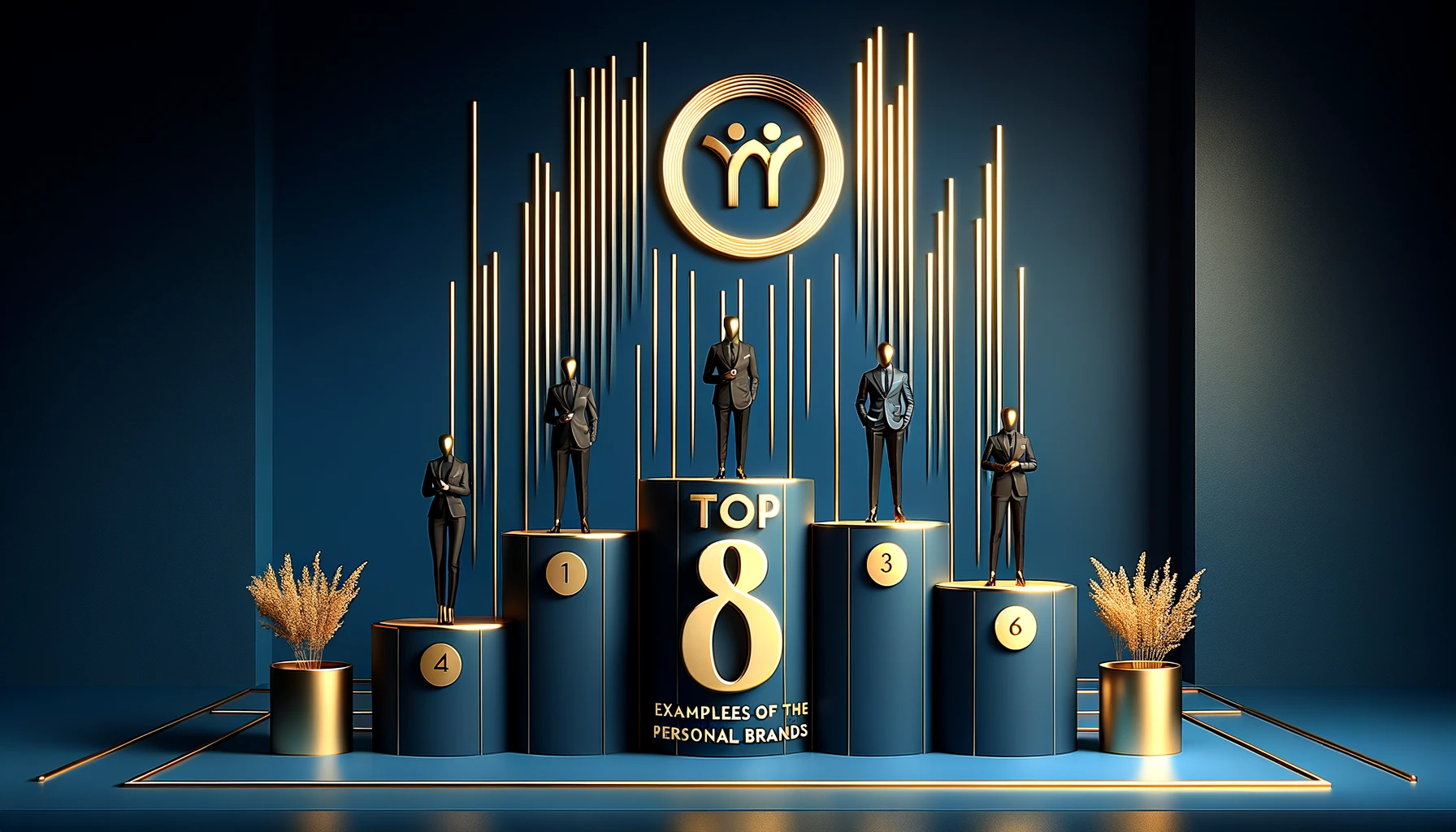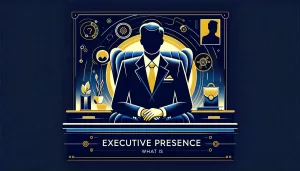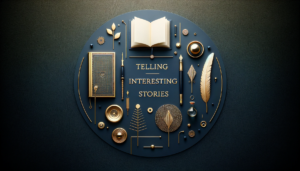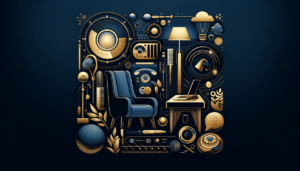Throughout history, there have been individuals who have effortlessly commanded attention, leaving an indelible mark on the world around them.
Think of the trailblazers, the visionaries, and the thought leaders who have harnessed the power of personal branding to rise above the noise and create a lasting impact.
From iconic figures like Coco Chanel, who revolutionized the fashion industry, to modern-day influencers like Elon Musk, who has redefined our understanding of innovation and entrepreneurship, these individuals have become beacons of inspiration for those seeking to carve their own paths.
As introverted professionals navigating the challenges of standing out, gaining recognition, and attracting professional opportunities, we often find ourselves wondering how to unlock our true potential and make our mark in a crowded world.
The idea of crafting a personal brand can feel overwhelming as we grapple with self-doubt and uncertainty.
But what if I told you that you don’t have to figure it all out on your own?
Contents
Follow Some of the Best Examples of Personal Branding
In the journey of personal branding, following someone else’s example can be a powerful catalyst for growth.
By studying the best examples of personal branding, we gain insights, strategies, and inspiration that can guide us along our own path to success.
Imagine being able to boost your career and letting opportunities come to you. No more hustling and no more convincing people that you can create value for them.
You can achieve this by building a personal brand that allows you to become the go-to expert in your niche.
This is the value a personal brand can generate for those willing to invest in it.
This is the reason why the most powerful and wealthy people in the world have been investing in their personal brands for quite some time.
This includes CEOs of big companies like Elon Musk, or Warren Buffet; celebrities like Natalie Portman or Joaquin Phoenix; athletes like Michael Jordan or Cristiano Ronaldo; and many others.
In this blog, I present to you a curated collection of the top 8 examples of the best personal brands out there.
These individuals have mastered the art of standing out, captivating audiences, and building influential personal brands that have propelled their careers to new heights.
By exploring their journeys, you’ll discover the principles, tactics, and mindset shifts that set them apart, serving as a roadmap for your own personal branding endeavors.
Without further ado, below are some of the most famous personal branding examples to help you get inspired to build yours
BONUS: Take a look at the type of results you can expect when you apply the insights from some of the personal branding examples in this list.
Here are Some of the Best Personal Brands
Warren Buffett
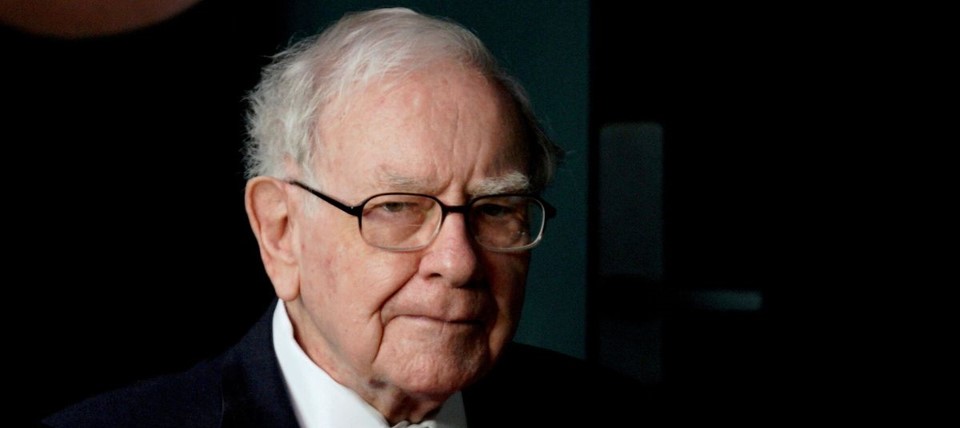
With a net worth of 86.5 billion, Warren Buffett is probably the most well-known investor of all time. His personal brand is clear and well-respected worldwide. By making a quick search in Google “Warren Buffett quotes” you’ll get hundreds of websites spreading this man’s wisdom.
Tone: Buffett’s speech is known for mixing business with humor. The annual reports and letters to shareholders from his enterprise, written by himself, frequently receive wide coverage by the media, due to his extravagance. Buffett’s texts are known for containing quotations from sources as varied as the Bible and novels, as well as advice in a folksy, Midwestern style and numerous jokes. He also likes to play the ukelele and sometimes he plays it in major business meetings.
Delivery: Buffett is often calling for self-improvement and modesty. He is known for his adherence to value investing, and his frugality although his vast wealth. He lives in the same house he bought in the ’70s for roughly $30,000 and drives his own Cadillac DTS.
Buffett is also known for contributing regularly to philanthropic causes, mainly through the Bill & Melinda Gates Foundation. Besides, he founded The Giving Pledge in 2009 with Bill Gates, whereby billionaires pledge to give away at least half of their fortunes.
Strategies: When you are one of the wealthiest men on Earth you do not need a mechanical lab-created strategy to make yourself known. People will talk about you, and Warren Buffet knows it. He doesn’t have Instagram or Facebook accounts, but he has one on Twitter, with only a handful of tweets showing his funny character.
Warren is in the house.
— Warren Buffett (@WarrenBuffett) May 2, 2013
Engagement: Everyone seems to know W.B. isn’t the typical billionaire. He’s philanthropic and enjoys staying in his old house. To him, success is not about the penthouse and the expensive cars, but more about power. And he uses it for good. He’s been sainted by the media probably because he’s a lot more ethical than other rich people, and so far there’s no evidence to say otherwise.
Oprah Winfrey

Oprah Gail Winfrey is an American talk show host, television producer, actress, and author. She is best known for her talk show, The Oprah Winfrey Show, which was the highest-rated television program of its kind in history and ran in national syndication for 25 years.
Also known as the “Queen of All Media”, she was the wealthiest African American of the 20th century and North America’s first black multi-billionaire woman. Having given away more than $51,000,000 for charitable programs, she has been also ranked as the greatest black philanthropist in American history.
Tone: In the early stages of her show, Oprah grew her audience with her authenticity, honesty, and smartness. Since then, these have been core values in her personal brand. Creating a realistic brand persona and portraying herself helped her cultivate and maintain a strong brand image in the long run. Apart from being true to her audience, her brand value lies in how she motivates others and improves their lives.
Delivery: Oprah Winfrey has stayed loyal to her brand and her values for the last 30 years. The lesson she is trying to deliver is to be authentic, sharing your joys, sorrows, and journey with others, because this will empower others to embrace their stories.
Oprah’s most prominent attribute is her empathy, and her ability to connect with others. It shines through her every public appearance without exception. It sets her apart from everybody else. It’s in her way of talking, her choice of words, body language, and energy. It emerges from how she tells a story and how she can help others to tell their stories.
Strategies: The Oprah Winfrey Show was the primary channel Oprah used to get herself known. She used it as an educational platform, featuring book clubs, interviews, self-improvement segments, and philanthropic forays into world events. Even though the show went out of the air in 2011, Oprah continued her strategy in TV format, by running other shows like Oprah’s Lifeclass, Super Soul Sunday, Oprah’s Next Chapter, and Oprah: Where Are They Now? Nowadays, she constantly publishes on social media.
Engagement: The Oprah Show was highly influential to many rising stars, and many of its themes, including controversial ones like sexual abuse or drug addiction, have gotten deep into the American cultural consciousness. This way, she helped open a space where people, including herself, could talk about their stories without judgment. She got to interview a great list of celebrities, athletes, chairmen, and even the former president, Barack Obama.
Gary Vaynerchuk
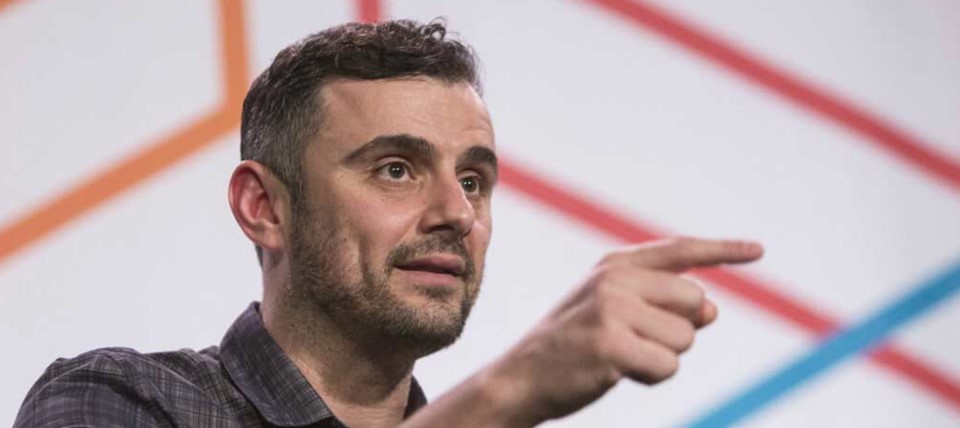
Gary Vaynerchuk, better known as Gary Vee, is a Belarusian-American entrepreneur and Internet personality, commonly referred to as a social media master. Gary is a prestigious speaker, podcast host, and author of a handful of bestselling books on entrepreneurship and social media marketing, like Twelve and a Half, or Crushing It.
He is currently the chairman of New York-based communications company VaynerX and CEO of VaynerX’s subsidiary VaynerMedia.
Tone: Gary Vee’s speech is energetic and a bit rude. If you didn’t hear the F word at least ten times you should doubt you were hearing Gary. He once stated during an interview that his favorite bad word was “di**face. He says, “It’s just something that happens when I have a camera on me,” and he considers it a reflection of his need to “be me.”
Gary is a very unusual motivational speaker. His messages are primarily positive, and more people should hear them: they encourage others to work hard in life because nothing comes easy, to not complain about the things that are wrong but fix them instead, and he even gives away some helpful marketing tips.
Delivery: It seems Gary derives satisfaction and pleasure from just helping ordinary people to succeed, and he is always saying it. He is an investor in Facebook, and Twitter, so it also benefits him to promote using the advertising products on those social media sites.
Gary is a visionary who started investing in social media before many and cultivated a following of over 1.5 million people on Twitter. Then, he used his connections and know-how to rocket his companies to success.
Strategies: His high level of involvement on social media is mainly responsible for his business success. At one point, Gary sent out an incredible amount of more than 60 tweets per day! However, 90 percent of his messages were responses to other people during this period. This clearly shows how much work he puts in, and his ability to listen.
It isn’t all directly about self-promotion. Nowadays, you can find Gary on almost every social media, such as Facebook, Twitter, Instagram, Linked-in, YouTube, Pinterest, Snapchat, or Quora. He uses a strategy he calls content on content on content, which consists of recycling long format posts, into many short format posts for other social platforms.
Engagement: Gary Vaynerchuk is not the typical influencer that’s trying to sell you a course, and he’s giving away actionable, practical business and marketing advice for free… plus he surely knows what he’s talking about. That whole “marketing for the year you live in” spiel resonated with modern investors and businessmen. He has a massive entourage of fans that are constantly thanking and attributing him to their success.
Arianna Huffington
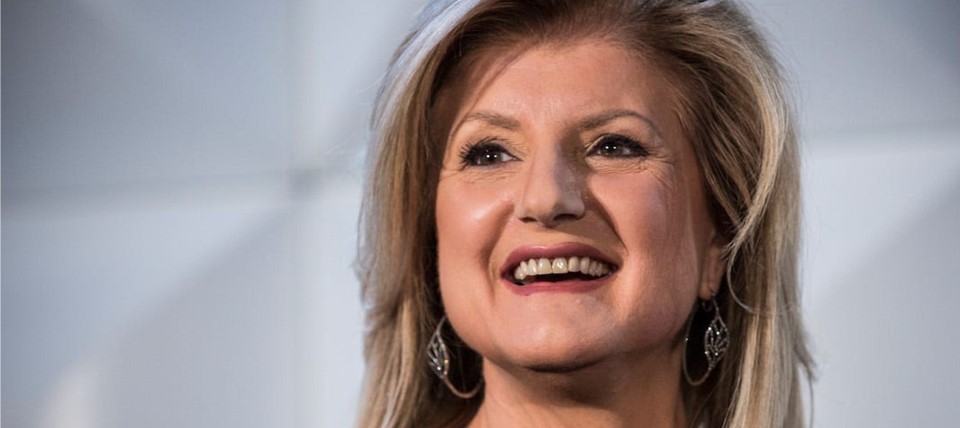
Arianna Huffington is the co-founder and former editor-in-chief of The Huffington Post, one of the most widely-read media brands on the internet. She is also a best-selling writer and a businesswoman.
In 2016 she founded Thrive Global, a company that provides media consulting. She has been the host of many politic TV and radio shows. In 2019 she was included in Time Magazine’s list of the world’s 100 most influential women.
Tone: Ariana was a famous conservative syndicalist writer with strong opinions in the mid-’90s. However, since 2016, her tone has gone lighter and less political. She often talks about health and wellness on social media, linking to her website Thrive, and referring to her books.
Delivery: Soon after quitting The Huffington Post, Arianna founded Thrive Global, which offers science-based solutions to stress and burnout, and she has been aligning her personal brand with this corporate brand, covering similar topics, and letting politics aside. Recently, Huffington started the Meditative Story podcast, which combines real stories and meditation prompts to create a mindfulness experience in audio.
Strategies: During these years, she continued to write books covering topics such as feminism, corporate greed, and political satire. She uses Twitter, Instagram, LinkedIn, and a personal website to promote these books and ideas. Her goal is to “change the way we work and live by ending the collective delusion that burnout is the price we must pay for success.”
Letting our minds wander without digital distractions can be a great thing! Here, members of the @Thrive community share creative ways to do so, even on a busy day.https://t.co/BKrKYRi7zK
— Arianna Huffington (@ariannahuff) February 16, 2021
Engagement: Huffington’s changes in political parties have been criticized by American media, stating that she is a political opportunist who sides with the most popular party. Nevertheless, she has stated that her change in parties is linked to her growth and that it is no crime to change opinions. She has 2.8 million followers on Twitter and 718k on Instagram.
Elon Musk
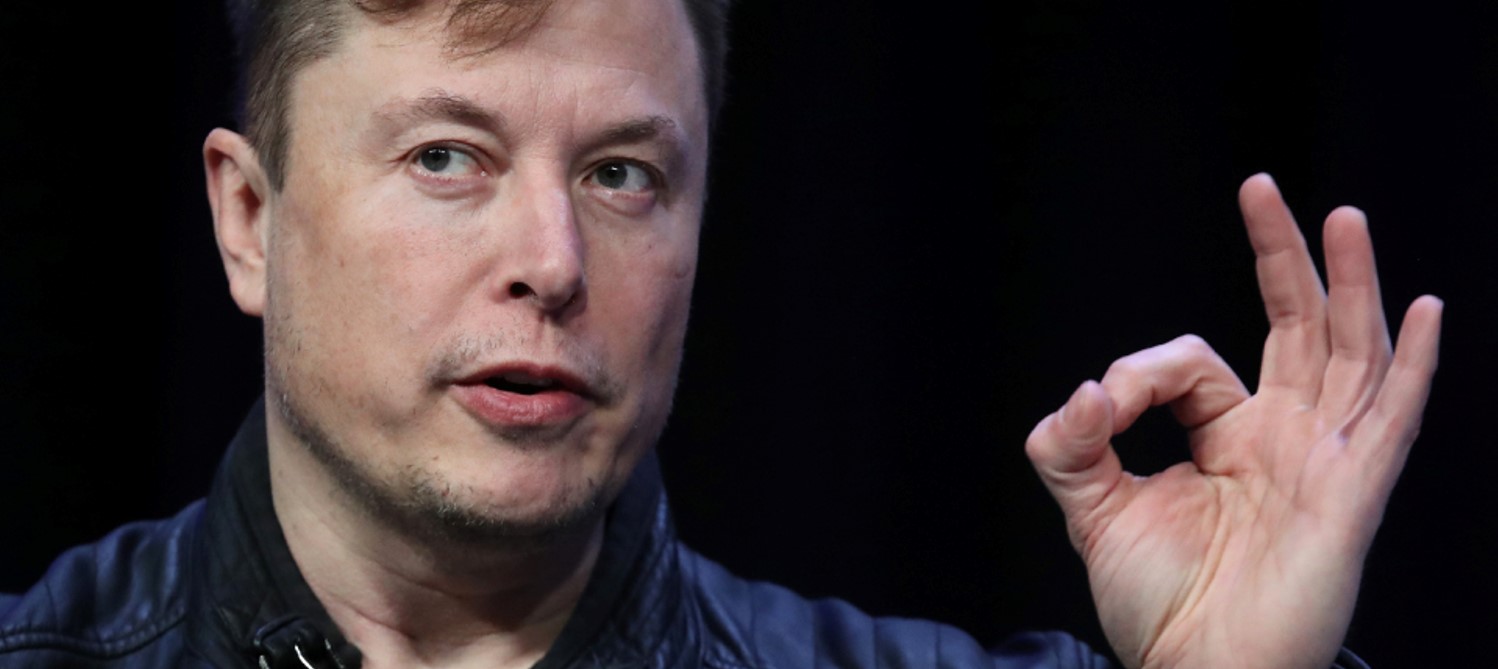
Often called “the real-life Iron Man”, Elon Reeve Musk is a South African physicist, entrepreneur, inventor, and businessman. He is co-founder of many top dollar companies, including PayPal, SpaceX, Hyperloop, SolarCity, The Boring Company, Neuralink, and OpenAI. He is currently CEO of SpaceX, Tesla Motors, chairman of SolarCity, and co-chairman of OpenAI. In January 2021, his fortune was estimated at USD 187 billion, making him the wealthiest person in the world.
Tone: When you listen to Elon Musk speak on stage, you get the impression that he would speak the same way over coffee. He doesn’t sound too formal or rehearsed, and it’s quite evident he is not mainly the best spokesperson, although he does a good job. He knows how to explain complex ideas in simple words and explain himself properly.
He dreams of a bigger, more fantastic future for humanity and its expansion, so currently, most of his efforts are in SpaceX, a business focused on the future. On the other hand, Tesla produces electric cars to take care of the environment here and now.
Delivery: Elon has always been a sci-fi enthusiast. He grew up reading books like the Foundations series, Tolkien, Arthur Clarke, and others in this genre. This deeply marked his personality and interest. Nowadays, Elon’s companies work with A.I, machine-human interfaces, and space traveling. One of his goals is to set the first human colony on Mars, and he’s pretty confident he’ll make it.
Strategies: Musk often talks about his career. The formation of his personal brand was influenced not only by numerous interviews but also by books (“Elon Musk: Tesla, SpaceX and the Road to the Future” by Ashley Vance) and films.
Musk appeared as himself in Iron Man, Machete Kills, Excellence, starred in The Simpsons, and an episode of The Big Bang Theory. These formats give flexibility in presenting yourself and demonstrate different facets of the personality, thereby increasing the feeling of “I know him” among the target audience.
On the other side, although he hates Facebook and has publicly called people to delete their Facebook accounts, he loves Twitter and tweets a lot. He loves it so much that he bought it in April 2022.
He enjoys being connected with his followers. Besides, he uses this channel to merchandise his non-conventional approaches to raising money. For example, he once sold 20.000 flame throwers to fund his Boring Company, a company destined to create high-speed underground transportation.
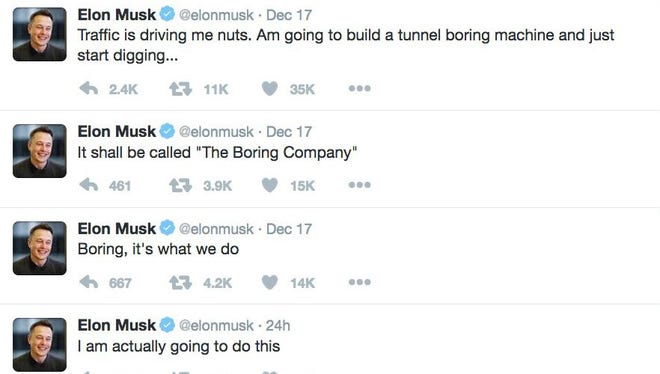
The moment Elon decided to create the Boring Company on Twitter because he was stuck in traffic
Engagement: Musk’s easygoing speaking style goes a long way in helping him connect with his fans, while his visionary language establishes him as the kind of guy who might lead us into the future of transportation.
Musk’s a dreamer, and he understands how important it is that his public participates in that dream. That’s why he makes them a part of his story.
Take, for example, someone that buys a Tesla vehicle. He is attracted to the story behind the brand. Musk probably had an important influence on the purchasing decision.
When this purchase is made, the customer instantly becomes a part of Musk’s story. They feel connected with the values Elon promotes, such as being future-focused and environmentally conscious. They’re joining Musk on his mission to move humanity forward. And in doing so, they become heroes of their stories.
Richard Branson
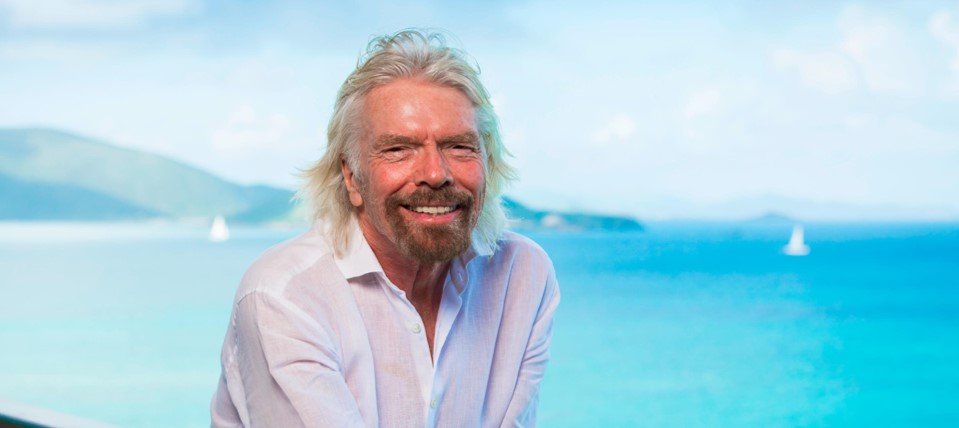
Widely smiling, Richard Branson stepped into the public eye at 16, founding his first company, a magazine titled “Student”. He’s formerly known for Virgin, a brand that owns more than 360 companies up to this day that makes up the “Virgin Group,” which happens to be a multinational that has gifted Branson with a US$6,5B networth.
However, he describes himself as an “adventurer, philanthropist and troublemaker” and has made his way to recognition with his natural spontaneity and a passionate compromise between humans and nature. Acclaimed for his vision and principles, Branson has lectured widely around the world, sharing his secrets for leadership and growing businesses from below.
He insists he had never thrived on money. In fact, he avoids talking about it. Branson says: “Too many companies want their brands to reflect some idealized, perfected image of themselves. As a consequence, their brands acquire no texture, no character, and no public trust”.
Tone: When talking about Branson, you’ll find most people agree that he’s a remarkable one, as if we knew him personally. He keeps a youthful essence to his speech, engages with the public, and never washes off the smile on his face.
Delivery: Richard talks from the soul, and it shows; he’s as transparent as he can be. The “champion of youth” encourages to keep an adventurous spirit while giving the example with his infectious personality. A true sense of humility is felt through his words, he believes the most important thing to be focusing on now is keeping the planet healthy, then yourself, and having fun along the way.
Strategies: Branson can’t help but connect with people in every way possible; LinkedIn, writing books, creating visual content, and sharing his personal and professional life very finely on social media. His followers appreciate openness.
Engagement: Speaking about social media, he does it the way it should be done. You can often find him on Twitter answering some of his followers, despite the sheer volume, on a nearly daily basis, and you can tell he understands this medium very well, as he always takes the opportunity to drive traffic to the Virgin Website.
A big part of his success is he always develops a clear and concise creative vision for the changes he wants to build in the world. Then, he passionately and tirelessly shares his vision using the power of brand-driven storytelling. As Richard Branson frequently emphasizes, your reputation is everything.
Ultimately, his fun personality, entrepreneurial integrity, and remarkable creativity attract so many people to follow him, work for his companies, and buy their products and services.
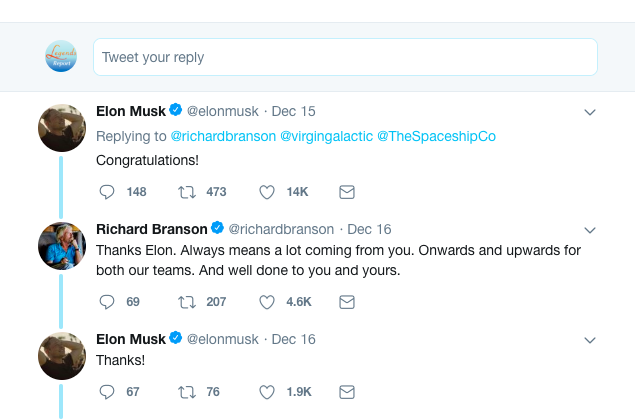
Richard and Elon interacting on Twitter
Barbara Corcoran
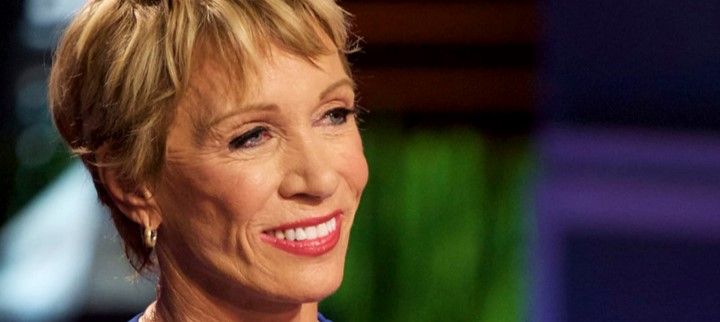
Barbara Ann Corcoran was born in 1949 in a working-class Irish-catholic family. She was the second out of 10 children. She struggled in her early school years due to her poverty and dyslexia.
After graduating from college, Barbara had many jobs, including one in New York renting apartments. This is where she started learning about the real estate industry and later formed The Corcoran Group, a real estate brokerage in New York City. She started this business with a loan of $1,000, and years later, she would sell it for $66 million.
In the process, she also became an investor, speaker, consultant, syndicated columnist, author, and television personality who is mostly known for her main role as a shark in ABC’s Shark Tank since its release in 2009.
Tone: Barbara’s tone is smooth, friendly, and easygoing. Her messages are always around personal growth, finances, and mostly about Shark Tank. She avoids sharing strong/controversial opinions on delicate subjects while focusing on making her audience laugh and connect with her.
I love investing in entrepreneurs who know hardship, who have something to prove and are hungry for success. They’re the ones I make a lot of money with.
— Barbara Corcoran (@BarbaraCorcoran) February 4, 2021
Delivery: Her wide outlook on life allows Corcoran to see the big picture, and often stays away from dealing with the small steps. This is the reason she attracts people who can fit into her big plans. Consequently, Barbara assesses people based on what they can do for the larger cause. As a true egalitarian, she is rarely prejudiced. This helps to get her message to her target audience, as they feel more connected.
Strategies: Corcoran is a columnist for More, a women’s lifetime magazine, The Daily Review, and Redbook. She has written four books, featured on TV and radio shows like Larry King Live, NBC’s Today show, and hosted The Millionaire Broker on CNBC. She also writes a weekly column in the New York Daily News and posts every day on Twitter and Instagram.
Engagement: When it comes to engagement, Corcoran clearly knows what she is doing. She is very active on social media and is always asking questions or for recommendations, opinions, or anything else. She has very positive feedback from her audience.
Tim Ferriss
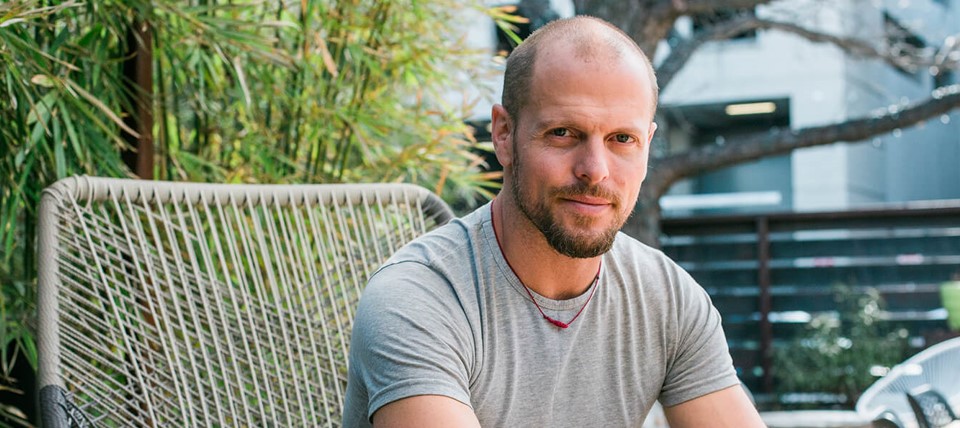
Timothy Ferriss was born in East Hampton, New York, and became a technology advisor and investor after graduating. He also worked at a data company in sales. He suffered from depression and struggled with an online company. However, at the end of the day, he resurfaced and created a brand with millions of fans and a successful podcast. All in 10 years. He took his experience as a traveler and entrepreneur and wrote a book that nailed as a Best Seller, “The 4-Hour Workweek”.
In 2001, Ferriss founded BrainQUICKEN, an online nutritional supplement company, while he was still employed at his previous job. In 2010 he sold the company, then known as BodyQUICK, a private equity firm based in London. He now owns a net worth of US$100 million from his investments.
Tone: Ferriss says he’s not a natural speaker. However, he happens to be a great learner, and the desire led him to start a podcast. And because he’s such a good student, he has said that when it’s time to speak in public, he does not think of himself as an influencer but as a teacher who shares what he has learned while making fun of himself -if he needs to.
Delivery: Tim has often been compared to a monk, but stoic philosophy mostly defines his lifestyle. He doesn’t have a process. He’s an immediate “doer” without thinking his way through that much.
Strategy: A teacher and a philanthropist, it’s easy for Ferriss to win anybody’s attention with his warm approach to individuals. His strategy surrounds the idea of perceiving himself as a “human guinea pig, ” so his failures are the teachings. Ferriss is the type to be helping around and treating everyone right, with a generous amount of logical thinking and lots of reading and writing.
Engagement: Ferriss’s natural urge to help and teach finally led him to engage in the newly emerging world of podcasting. Being healthy, working out, improving himself, and finding ways to be more productive, are some of the habits we wanna learn, and he knows it, he was 20-something not so long ago, and his speech always stays fresh and clean.
BONUS: Leverage the inspiration from these examples and start building your personal brand today by downloading our FREE personal branding template.
What to Learn from People with Strong Personal Brands?
A good leader understands that their personal brand is a vehicle that can allow them to take their career to new heights.
Many expansion possibilities come with the strategic management of your personal brand. All the people listed in this article know it and invest in it. They are making millions, if not billions, only with their names and the power they have been able to reach by building a solid personal brand.
By getting to know the best examples of personal branding, you may better understand how to build your brand as a professional.
If you are eager to know how to start your personal branding journey, a great first step is to learn how to write your personal branding statement.
Later, you might want to take a look at the investment that will be required for you to keep the process going. Whenever you are ready, feel free to book a personal branding consulting session with us to take the next step.
